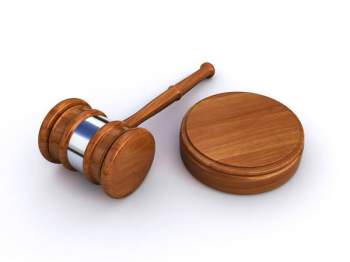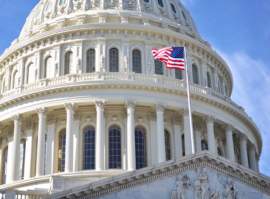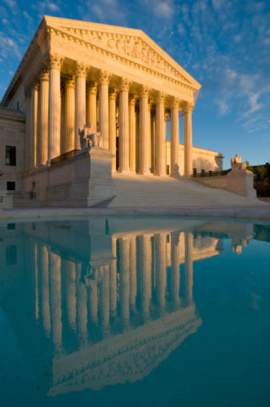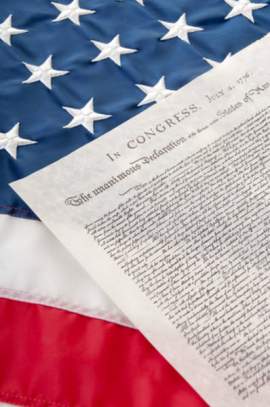
Jurisdiction of Supreme Court Guideline

Popular In Constitution
Purpose Of Lifetime Appointment And Pros And Cons Enumerated Powers Bicameral Legislature Background Article 3 Of The Constitution We The People 1st Amendment Who Wrote The Constitution Judicial Review Equal Protection Clause 10th Amendment Three Fifths Compromise 5th Amendment
The Supreme Court of the United States holds Constitutionally-guaranteed powers to exercise its judgment over specific court cases heard in the United States legal system and submitted along the proper channels for the consideration by the Supreme Court. In order to ensure that this privilege is exercised for the good of the United States as a whole, this jurisdictional power is placed under the purview of Congress, which may pass legislation as it sees fit to limit the scope of the cases which may be considered by the Supreme Court of the United States. The Constitution also provides for certain, albeit limited, cases in which the United States Supreme Court will be automatically discounted from hearing a case.
Constitutional and Congressional allocation of judicial jurisdiction is intended both to benefit the ability of the Supreme Court of the United States to fulfill its purpose and to prevent it from usurping the powers granted to the other branches of Government. As to the latter point, the jurisdiction of the United States Supreme Court is oriented toward the protection of the principle of the separation of powers. In terms of the former, however, jurisdiction is simply a tool to ensure that the United States Supreme Court can practically attend to the high volume of court cases heard in the United States every year.
To provide for a realistic workload, the primary power of the Supreme Court of the United States is in appellate form, referring to its ability to hear appeals directed toward findings made in lower cases. This jurisdictional understanding confers both powers and limitations on the Court in the sense that the United States Supreme Court enjoys oversight over lower courts but it cannot, as they do, originate cases, or hold "original jurisdiction".
As an exception to the last rule, the Supreme Court of the United States does have quite limited powers of original jurisdiction. These can be found mostly in cases in which the representatives of other governments, such as ambassadors, are involved, and in lawsuits brought by one American State against another. Conversely, there is placed a limit on the jurisdiction of the United States Supreme Court, newly considered to exclude lawsuits brought against an American State by residents of another State or country, though some limitations can be observed on this restriction.
Based on its Constitutional power to regulate the jurisdiction of the Supreme Court of the United States, Congress has passed legislation excluding from the Court's consideration any lawsuits between residents of individual states with less than $75,000 at stake.
In recent history, the Congressional ability to limit the jurisdiction of the United States Supreme Court proved a source of controversy when Congress passed legislation excluding from consideration by the Court cases brought by certain kinds of prisoners of war. The George W. Bush Administration sponsored this Bill to protect its policy of placing suspected terrorists in detention in the U.S. military base at Guantanamo Bay, where the defendants' habeas appeals were blocked from being heard by the Detainee Treatment Act.
NEXT: What Is The Scope of Federal Judicial Power





















